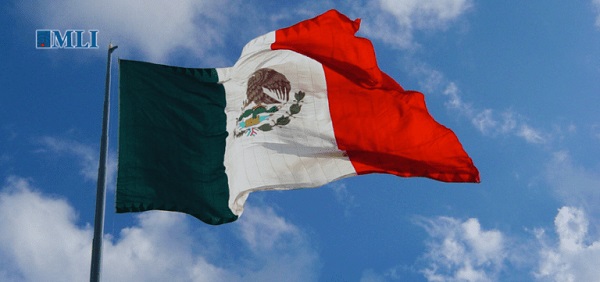Great Reset
Don’t celebrate yet: The WHO could still sneak the pandemic treaty through a back door

Dr Tedros Ghebreyesus of the World Health Organization
From LifeSiteNews
Several nations, including the United States, have proposed a Resolution, the effect of which would be that the WHO will continue to negotiate the proposed Amendments to the IHR throughout this week, to be voted upon by the end of the week.
Negotiations to finalize both the proposed Amendments to the International Health Regulations and the new Pandemic Treaty stalled on Friday May 24, leading many to claim that the treaty was “dead.” However, the Director General of the World Health Organization, Dr. Tedros Ghebreyesus, immediately stated that the negotiations would continue.
Several nations, including the United States, have proposed a Resolution, the effect of which would be that the WHO will continue to negotiate the proposed Amendments to the IHR throughout this week, to be voted upon by the end of the week.
RELATED: Canadian MP warns new WHO pandemic treaty may enshrine COVID-era freedom restrictions
A press release from the WHO makes clear that it wants to finalize the Amendments to the International Health Regulations by June 1.
Reggie Littlejohn, Co-Founder of the Sovereignty Coalition and President of Anti-Globalist International, traveled to Geneva for the World Health Assembly. She stated:
Negotiating Amendments to the International Health Regulations during the meeting of the World Health Assembly, to be disclosed the day of the vote on those amendments, is a flagrant violation of IHR Article 55, which requires that all proposed amendments be circulated in their final form four months in advance of a vote. The intent of Article 55 is to give national governments and civil society time to review the proposed changes and analyze their impact. The fact that the World Health Organization is willing to violate its own laws and regulations so flagrantly indicates their disdain for the rule of law. If they are willing to toss even their own procedural safeguards out the window, why should we expect them to honor the laws of our nation?
Littlejohn continued: “Beyond this, we have no idea what they are planning to add to the IHRs, as they are negotiating them this week in a black box. Will they try to inject problematic provisions of the Pandemic Treaty – provisions that could damage our national sovereignty and personal medical freedom – into the IHRs, so that they can get them passed by consent rather than putting them to the rigorous 2/3 majority vote required by a treaty? We must do everything we can to stop this vote on Friday!”
DEI
University System of Georgia to ban DEI, commit to neutrality, teach Constitution
By
“The basis and determining factor” for employment will be “that the individual possesses the requisite knowledge, skills, and abilities associated with the role, and is believed to have the ability to successfully perform the essential functions, responsibilities, and duties associated with the position for which the individual is being considered.”
The University System of Georgia’s Board of Regents has recommended a number of new and revised policies for its institutions, such as a commitment to institutional neutrality, the prohibiting of DEI tactics, and a mandatory education in America’s founding documents.
The University System of Georgia (USG) is made up of Georgia’s 26 public colleges and universities as well as Georgia Archives and the Georgia Public Library Service.
“USG institutions shall remain neutral on social and political issues unless such an issue is directly related to the institution’s core mission,” the board’s proposed revisions read.
“Ideological tests, affirmations, and oaths, including diversity statements,” will be banned from admissions processes and decisions, employment processes and decisions, and institution orientation and training for both students and employees.
“No applicant for admission shall be asked to or required to affirmatively ascribe to or opine about political beliefs, affiliations, ideals, or principles, as a condition for admission,” the new policy states.
Additionally, USG will hire based on a person’s qualifications and ability.
“The basis and determining factor” for employment will be “that the individual possesses the requisite knowledge, skills, and abilities associated with the role, and is believed to have the ability to successfully perform the essential functions, responsibilities, and duties associated with the position for which the individual is being considered.”
Beginning in the 2025-2026 academic year, the school’s civic instruction will require students to study founding American documents among other things.
USG students will learn from the Declaration of Independence, the United States Constitution and Bill of Rights, the Articles of Confederation, the Federalist Papers, the Gettysburg Address, the Emancipation Proclamation, and Martin Luther King Jr.’s Letter from Birmingham Jail, as well as the Georgia Constitution and Bill of Rights.
When reached for comment, the Board of Regents told The Center Square that “these proposed updates strengthen USG’s academic communities.”
The recommended policies allow a campus environment “where people have the freedom to share their thoughts and learn from one another through objective scholarship and inquiry,” and “reflect an unyielding obligation to protect freedom, provide quality higher education and promote student success,” the board said.
The board told The Center Square that it proposed strengthening “the requirements for civics instruction” with the inclusion of “foundational primary sources” because of higher education’s duty to students.
Colleges and universities “must prepare [students] to be contributing members of society and to understand the ideals of freedom and democracy that make America so exceptional,” the board said.
As for ditching DEI, the board explained that “equal opportunity and decisions based on merit are fundamental values of USG.”
“The proposed revisions among other things would make clear that student admissions and employee hiring should be based on a person’s qualifications, not his or her beliefs,” the board said.
The Board of Regents also said it wants to “ensure [its] institutions remain neutral on social and political issues while modeling what it looks like to promote viewpoint diversity, create campus cultures where students and faculty engage in civil discourse, and the open exchange of ideas is the norm.”
USG’s Board of Regents recently urged the NCAA to ban transgender-identifying men from participating in women’s sports, in line with the NAIA rules, The Center Square previously reported.
Censorship Industrial Complex
G20’s Online Speech Clampdown Calls Set To Ignite Free Speech Fears

G20 leaders convened in Rio de Janeiro have called for enhanced responsibility and transparency from digital platforms to tackle the growing challenges of “misinformation,” “disinformation,” “hate speech,” and others on their long list of supposed online “harms.”
The summit’s final declaration highlighted the transformative role of digital platforms in global communication but noted the adverse effects of digital content’s rapid spread. It called for increased accountability from platforms to manage speech, which should raise eyebrows among free speech advocates who’ve heard all this before.
We obtained a copy of the declaration for you here.
During the summit, the leaders highlighted the transformative impact of digital platforms in communication and information dissemination across the globe. However, they also alleged negative ramifications of unchecked digital spaces, where “harmful” content can proliferate at an unprecedented pace and scale.
In response, the G20’s final declaration underscored the critical role of digital platforms in ensuring their ecosystems do not become breeding grounds for speech they don’t like.
The declaration states: “We recognize that digital platforms have reshaped the digital ecosystem and online interactions by amplifying information dissemination and facilitating communication within and across geographical boundaries. However, the digitization of the information realm and the accelerated evolution of new technologies, such as artificial intelligence (AI), has dramatically impacted the speed, scale, and reach of misinformation and disinformation, hate speech, and other forms of online harms.”
The G20 goes on to say that it emphasizes the “need for digital platforms’ transparency and responsibility in line with relevant policies and applicable legal frameworks and will work with platforms and relevant stakeholders in this regard.”
The declaration even says more measures need to be taken to control what it says is the spread of online misogyny and the need to combat it “online and offline.”
-

 Brownstone Institute2 hours ago
Brownstone Institute2 hours agoThe Most Devastating Report So Far
-

 Economy14 hours ago
Economy14 hours agoCOP 29 leaders demand over a $1 trillion a year in climate reparations from ‘wealthy’ nations. They don’t deserve a nickel.
-

 Alberta12 hours ago
Alberta12 hours agoOn gender, Alberta is following the science
-

 Energy13 hours ago
Energy13 hours agoOttawa’s proposed emission cap lacks any solid scientific or economic rationale
-

 Bruce Dowbiggin1 hour ago
Bruce Dowbiggin1 hour agoCHL Vs NCAA: Finally Some Sanity For Hockey Families
-

 Brownstone Institute1 day ago
Brownstone Institute1 day agoFirst Amendment Blues
-

 Crime2 days ago
Crime2 days agoMexican cartels are a direct threat to Canada’s public safety, and the future of North American trade
-

 Business2 days ago
Business2 days agoDEI gone?: GOP lawmakers prep to clean house in federal government



